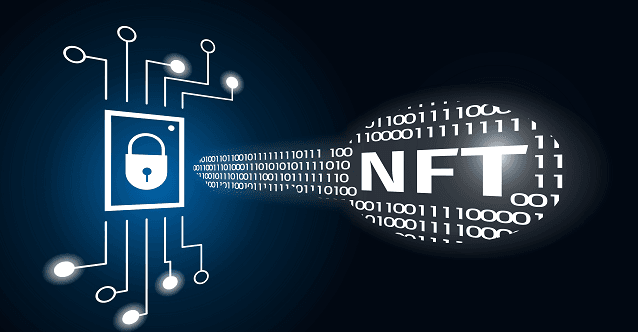
Can NFTs Be Hacked?
20 Jul 2023

20 Jul 2023
NFTs are minted using cryptography and blockchain networks. So, aren’t they a safe and secure way to store your tokenized assets? Unfortunately, in many cases, scammers and hackers can put a damper on security and your NFT assets become at risk. Let’s delve into the hackability of NFTs, starting with a little backstory.
Non-Fungible Tokens (NFTs) use blockchain technology to offer digital representations of ownership and authenticity for unique items. Non-Fungible means that each NFT is its own distinct token, provable as an original on the transparent blockchain ledger.
A fungible token would be like most cryptocurrencies, including Bitcoin, Ethereum, or Doge. All units of each type of crypto asset are identical and interchangeable - the exact opposite of non-fungible.

The bedrock of cryptocurrencies and NFTs is blockchain—a decentralized, transparent technology famous for its robust security features. Blockchains like Ethereum, where most NFTs are minted, use cryptography to keep transactions secure. Once data is added to the blockchain, it's extremely difficult to alter without consensus from the network.
This foundation offers NFTs a high level of security.
These unique digital assets have carved a niche for themselves in an expanding list of industries, including art, music, gaming, metaverse, and real estate. Many NFTs have also become extremely valuable, something that has drawn nefarious actors into the space.
Which begs the question: When you buy, sell, or trade an NFT, how secure is that digital asset? Can NFTs be hacked?
In the purest sense, the NFTs themselves, thanks to their blockchain underpinnings, are secure. However, that doesn't mean they are entirely immune to all vulnerabilities.
 Fake Discord account scamming NFT investors - Source: CoinTelegraph
Fake Discord account scamming NFT investors - Source: CoinTelegraph
The examples above are only the tip of the iceberg. NFT scams and hacks can take on many different forms:
Platform Vulnerabilities: While NFTs reside on a secure blockchain, they are often bought, sold, and displayed on online platforms or marketplaces. If these platforms have vulnerabilities, hackers can exploit them. For instance, if an NFT marketplace does not implement proper security measures, hackers might access users' accounts and transfer NFTs without their consent.
Phishing Attacks: The age-old trick of deceiving individuals into providing their sensitive data, like private keys or passwords, remains a threat. Once these details are obtained, unauthorized access to one's digital wallet or NFTs becomes possible.
Smart Contract Flaws: NFTs operate using smart contracts—self-executing contracts with the terms of agreement directly written into code. If there's a loophole or flaw in the contract, it could be exploited. Though smart contract auditing has become a norm, human error can sometimes overlook potential vulnerabilities.
There are multiple other ways that hackers can separate you from your NFT assets, such as with NFT spoofs (or fakes), or Man-in-the-Middle attacks, where communications between an investor and a website are compromised due to lack of encryption.
Overall, most of the vulnerabilities that threaten your NFTs stem from two access points: your private keys and transaction signing. Scammers want to either gain access to your private keys so they can take control over the assets, or get you to sign a transaction that may lead to a malicious website where your assets get drained.

Source: @Ricerd on Twitter
While the risks associated with NFTs might seem daunting, there are steps you can take to ensure your digital assets remain safe:
Moral of the story? Play it safe with Gridlock’s hyper-secure NFT wallet, where distributed private keys and threshold signatures provide the highest level of security for your precious non-fungibles.
Download Gridlock today and rest easy tonight, knowing your NFTs are safe.
- - -
Written by Reid Zedkongor

Reid Zedkongor is peeling away layers of confusion around blockchain and cybersecurity. With a computer engineering background, he can dive into the details of crypto complexities to make crypto adoption easy for everyone. In his free time, he often reads fiction or enjoys a good laugh over a beer.